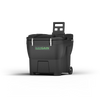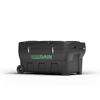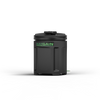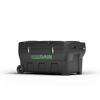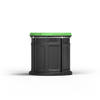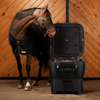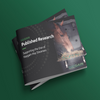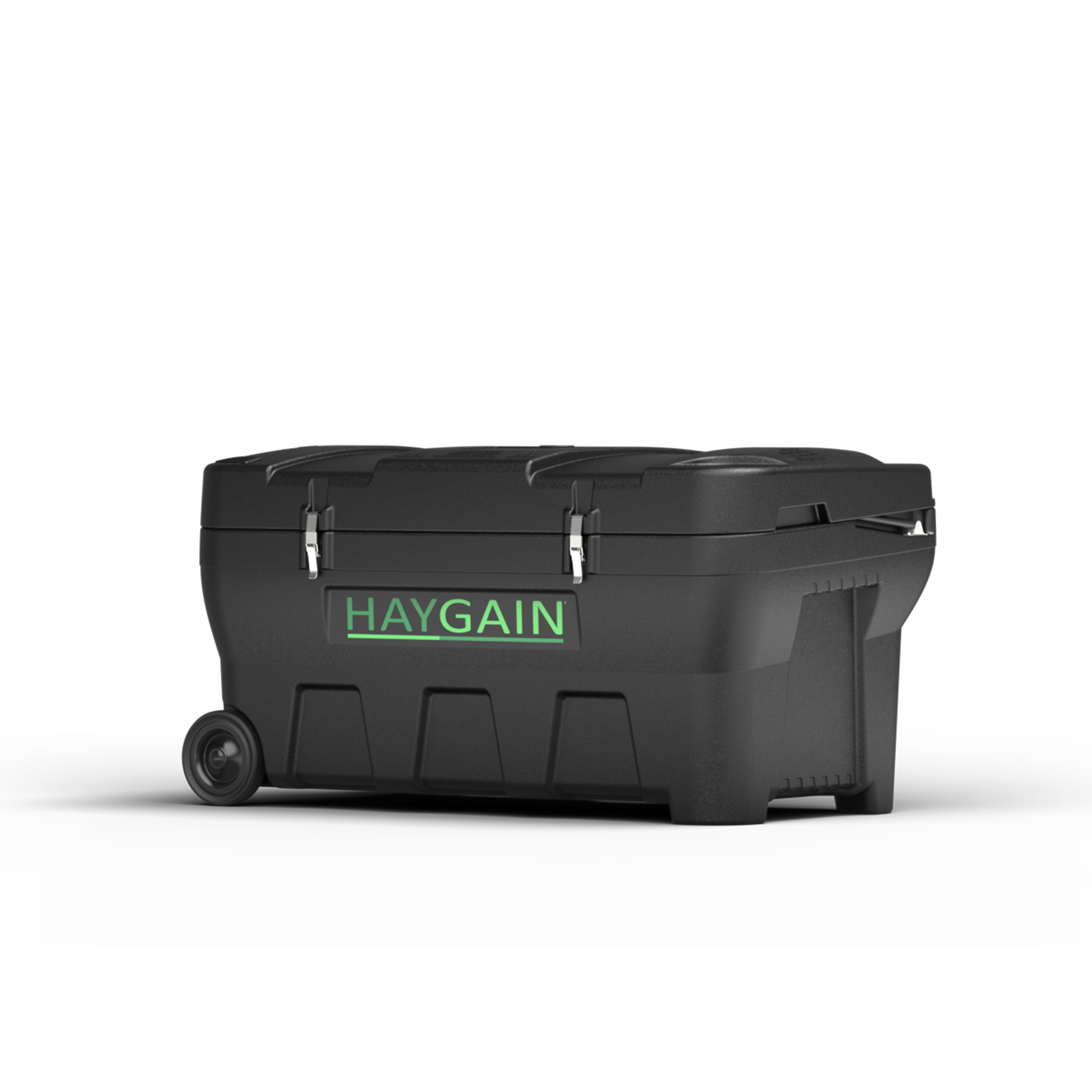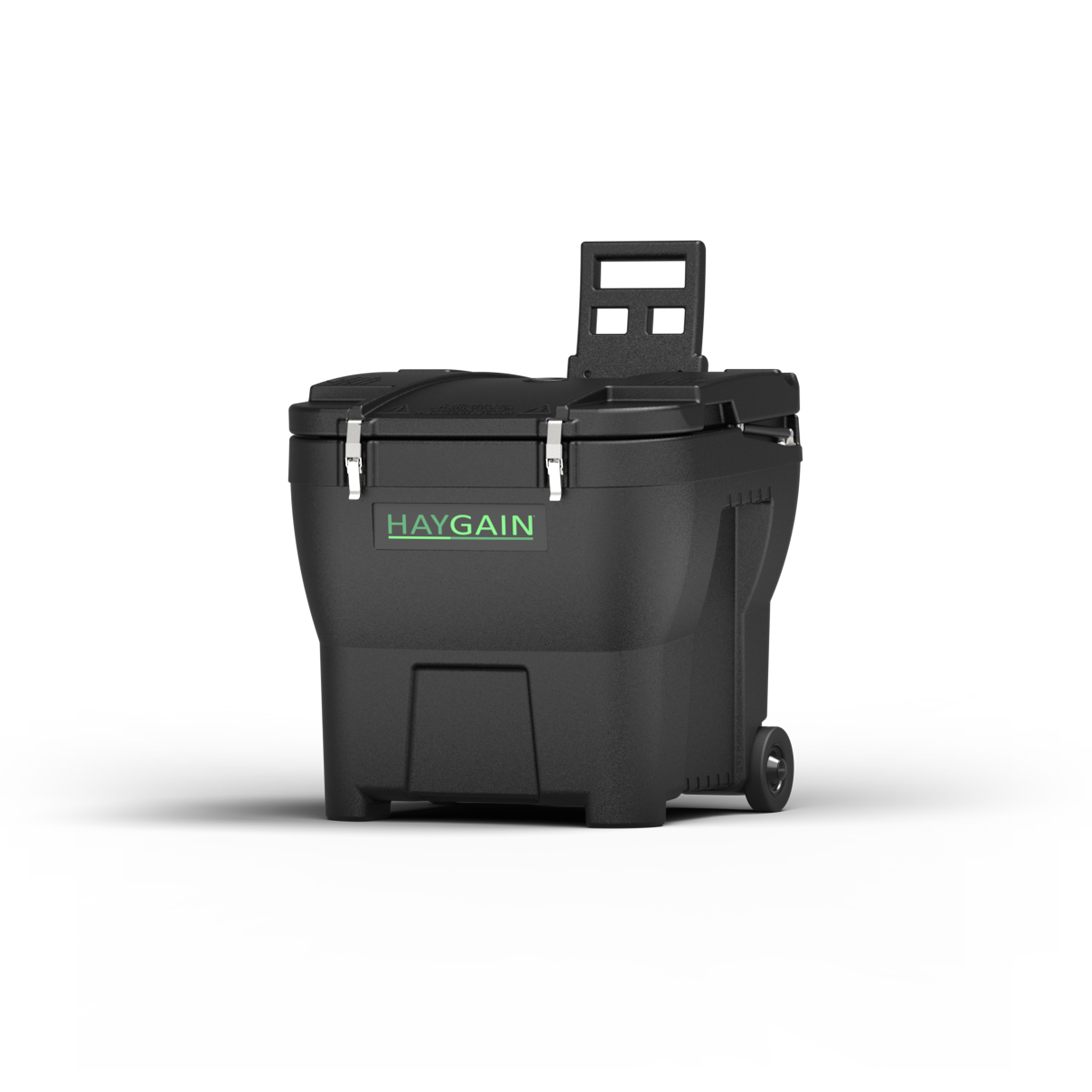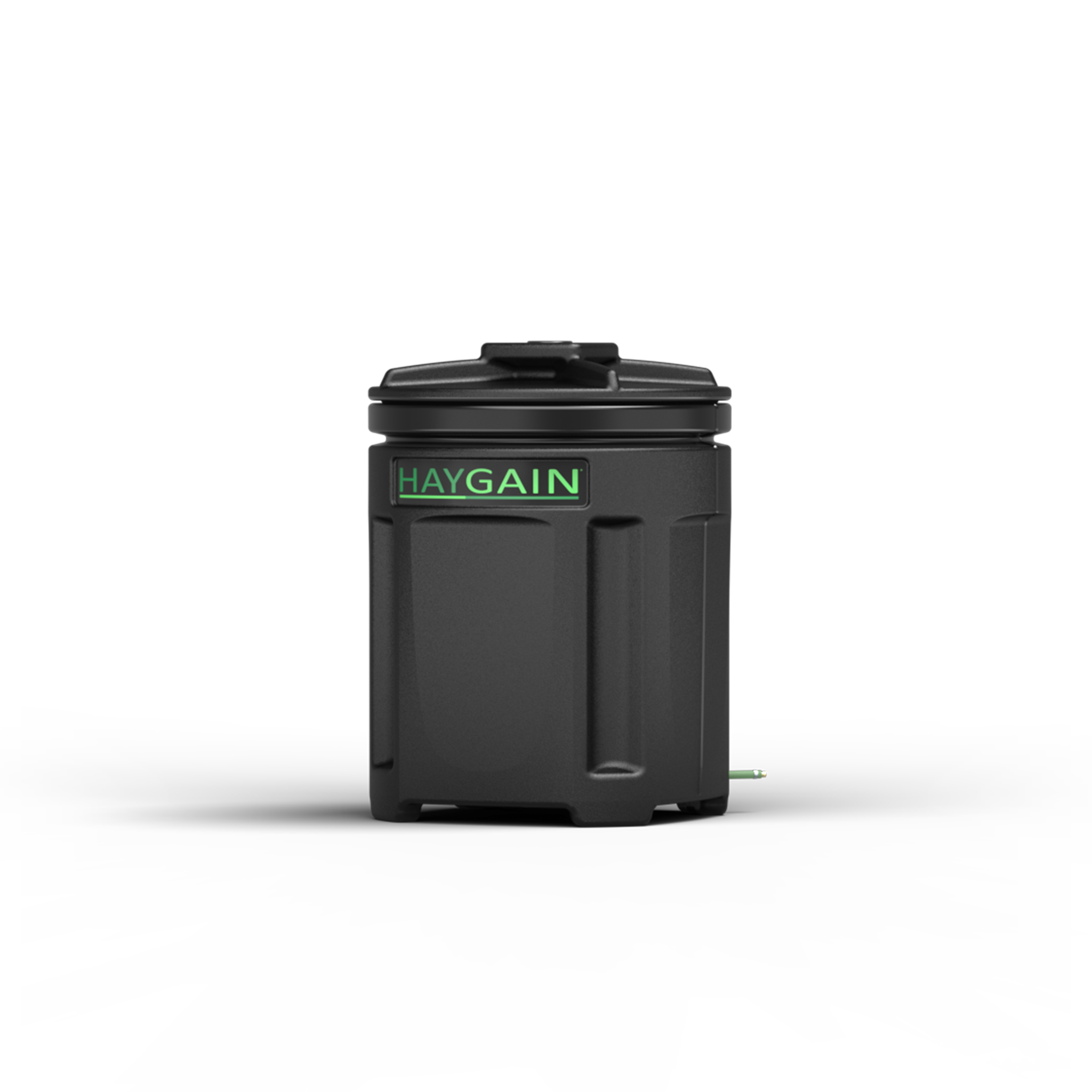Colic in horses
Horse colic is a broad veterinary term used to describe a symptom of abdominal pain. It can affect any horse, at any time, for a multitude of reasons, in fact there are over 70 different types of intestinal problems that cause colic symptoms, which range from mild to severe.

Kim Miller
Equestrian writer, 03/02/2020
Reducing the risk of colic
Whilst colic cannot be prevented in all cases there are several things horse owners can do to reduce the risk of colic.

The quality of forage hygiene can be improved using a Haygain hay steamer"
Water: Always ensure the horse has access to clean, fresh water. Dehydration impedes gut movement and when ingested feed stops moving through the horse’s gut efficiently, the material can accumulate and cause impaction colic.
No sudden changes to diet: Dietary changes should be made gradually over 2-3 weeks. Studies show a greater colic risk 7-14 days after diet change.
Turnout: Studies have shown horses that have access to pasture turnout have a lower colic risk than those without pasture access.
Maximise forage intake: Consuming forages can provide much of the energy needs of the horse, help maintain gastrointestinal tract function and help prevent boredom in the stabled horse. Conserved forages such as hay should be provided in a way to minimize the horse eating directly off the ground where it would potentially consume sand, dirt, and/or parasites.
Forage hygiene: Poor forage hygiene caused by bacteria and mould in conserved forage has been identified as a risk factor for colic. The quality of forage hygiene can be improved using a Haygain hay steamer which steams at high temperatures to kill bacteria and mould thus improving the hygiene quality of the forage.
More tips...
Minimize concentrate intake: Colic risk increased 70% for each pound increase in whole grain or corn fed in some studies. Horses eating pelleted feeds are also at increased risk for colic compared to horses on a 100% hay diet.
Regular dental checks: Ensures good ability to thoroughly chew hay and other feed. Horses that are unable to chew their food properly can suffer from impaction colic where pieces of poorly chewed hay block portions of the intestine.
If a horse is prone to impaction colic for whatever reason, one of the most common therapies we like to do is add water to their diet. [...] for every bale that gets steamed, three-quarters of a gallon of water gets put back into the hay [..]."
Veterinarian Dr Davis talks about the benefits of water in the horse's diet
"Recently we've had a lot of questions come in about colic and what would steaming hay do for that. Inherently the name "colic" is a catchphrase for a lot of digestive upsets in the horse's GI tract; whether it'd be stomach all the way back to their hind gut.
So we have to be very specific on this answer. If a horse is prone to impaction colic for whatever reason, one of the most common therapies we like to do is add water to their diet. More water is not going to be harmful to the horse and we know that for every bale that gets steamed, three-quarters of a gallon of water gets put back into the hay and you can palpate the softness in the hay.
Does that help impaction colic? It should. We use them for post-op colic surgeries.
The problem for veterinarians is that horses don't like to eat immediately after going through colic surgery, and we have tested HAYGAIN hay against non-steamed hay to see if horses would find it more appetizing, and we've found that horses routinely go back to eating the HAYGAIN hay before the dry hay post-op. And it's important for us from a veterinary standpoint that horses get back on their nutritionary plan, which is critical to their recovery from surgery."

Parasite control
Effective parasite control: Keep parasitic levels in the gastrointestinal tract low. Parasite-related colic can be caused by:
Strongyle larvae migrate around the intestine and damage blood vessels, decreasing blood supply and in turn, causing tissue death, decreased motility and pain.
Roundworms when heavily infested can cause impaction or obstruction of the intestines, which can cause impaction colic.
Deworming medication. Horses that are very heavily infected with parasites may experience a bout of colic after you deworm them with paste wormer. Allowing parasites to build up in the digestive system could cause an impaction of dead worms leaving the system. Best practice is to keep your horse on a regular deworming schedule.
Recognising the signs of colic
Colic episodes vary in type, nature and severity but colic signs include:
- Pawing at the ground
- Flank watching
- Kicking or biting at the belly
- Rolling
- Repeated lying down, lying on their back or sitting
- Repeated curling back of upper lip
- Sweating
- Stretching
What to do when a horse has colic
- Call your vet immediately - time is critical in cases of horse colic
- Place your horse in a small yard or a well bedded stable to allow for easy and close observation
- Remove all food from the stable until the veterinarian arrives
- If your horse is rolling violently, try gently walking them or keeping them standing if it is safe to do so
How can Haygain help?
Haygain hay steamers offer a range of health benefits for horse owners; from respiratory health, to digestive health, hydration, palatability, performance and skin condition. Find out how Haygain hay steamers can help your horse today by clicking on the links below.
Cohen N.D., Matejka P.L., Honnas C.M., Hooper R.N. Case-control study of the association between various management factors and development of colic in horses. Texas Equine Colic Study Group. Journal of American veterinary medical association. 1995 206 (5): 67-73
Kaya G.L., Sommerfeld-Stur. Iben C. Risk factors of colic of horses in Austria. Journal of Animal Physiology Animal Nutrition 2009;93:339-49
Reeves M.J., Salman M.D., Smith G. Risk factors for equine acute abdominal disease(colic): Results from a multi-centre case-control study. Preventive Veterinary Medicine Vol 26 Issues 3-4 April 1996 p285-301
Tinker M.D., White N.A., Lessard P., Thatcher C.D., Pelzer K.D., Davis B., Carmel D.K. Prospective study of equine colic incidence and mortality. Equine Veterinary Journal 1997 29 (6): 448-53
